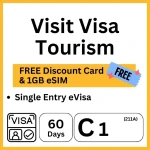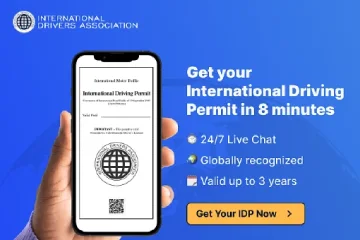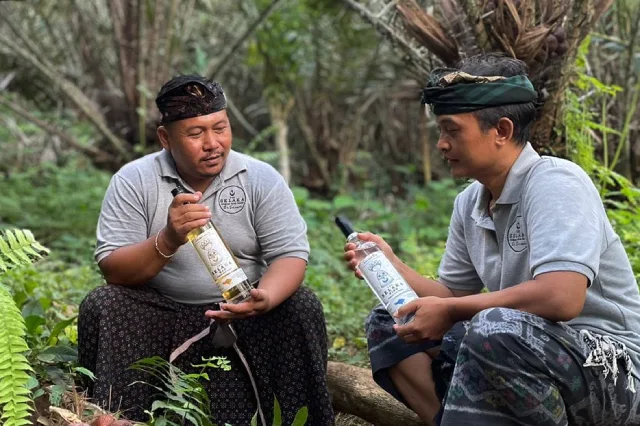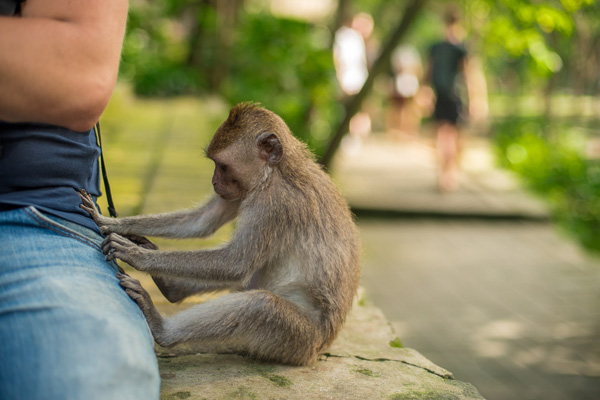Things to Do in Bali
Save yourself some time and money
We’ve condensed advice and facts into a five minute read that will save you a lot of time and hassle.
Handpicked, straight from the island, with advice from real visitors, expats, and locals.
Visa, Passport, Travel Regulations
- Visa and travel regulations have changed quit a bit. Ensure you are well-informed and up-to-date, especially if staying longer than 30 or 60 days. Visa Regulations & Travel Regulations for Bali
- Your passport must be valid for 6 months upon arrival. Otherwise, you will not be allowed to enter Bali. There are NO EXCEPTIONS.
- One page of the passport must be empty for the visa stamp (immigration e-gates are not always available)
- Keep your boarding pass upon arrival; you might need to show it to the immigration officer.
- Immigration officers might ask for a return ticket.
Prices in Bali - Cost of Traveling
- Most prices include VAT (10-12%) and a service charge (5-11%) for hotels and restaurants. Check the restaurant menu to see if these charges are included or added later to the bill.
- Tipping is optional but appreciated. Some tourist venues charge a service charge, which includes the tip, so not necessary to leave an additional tip
- Homestays and dorm rooms for backpackers can still be found for US$15-20 per night.
- New budget hotels offer clean rooms with AC for US$30+.
- Four-star hotels and resorts often charge between US$70-120 per night.
- Private, serviced villas offer great value for money, ranging from US$150 to several thousand.
- Most restaurants offer reasonably priced meals for US$5 to $7. A healthy, freshly prepared meal in a Warung (local restaurant) or on the street can be as little as US$1.50.
- Imported wine and liquor are more expensive than domestic alcoholic beverages due to import taxes.
Food & Culinary Delights
- Unlike Bali’s uncertain tap water quality, ice quality is regulated by the government.
- Vegetarian and healthy food options are on the rise, particularly in Ubud and Canggu. Try the detox smoothies.
- Rooftop bars and beach clubs are becoming more popular, especially in Canggu.
- Bali offers an incredible variety of dining options, catering to all tastes.
- Foreigner-friendly supermarkets such as Frestive and Pepito stock imported products, which can be quite expensive.
- The Go-Jek app allows you to order food and get it delivered (GoFood).
Choosing Your Accommodation
- Never assume a location’s listing is correct. Always double-check the map and details. The “Kuta Hotel” may or may not be in Kuta, and a “Suite” may not be a suite.
- Location is crucial. Study the map carefully to determine walking distances and accessibility to the beach or other points of interest.
- Every destination in Bali is different. Learn about the areas before booking rooms.
- If you want to stay in less expensive hotels or homestays, we recommend booking through booking websites (e.g., our partner booking.com). This ensures your consumer rights are protected if the property is in poor condition.
Main Destinations
The Main Bali Destinations
- Kuta: Known for its wild nightlife scene, popular with young Australians.
- Canggu: The new hotspot with beach clubs, a surfer town vibe, tofu burgers, and yoga.
- Seminyak: Offers refined cocktail bars and nightlife compared to Kuta.
- Ubud: Laid-back with art, small shops, great food, a healthy lifestyle, and yoga. Busy during the day with tourists.
- Lembongan and Ceningan: Easy to reach, reminiscent of Bali 30 years ago, offering greater comfort.
- Sanur: Tranquil and upper-class with calm beaches, superb beachside dining, and live music.
- Nusa Dua: A 350-hectare enclave with five-star resorts, deluxe spas, exclusive golf courses, and world-class convention centers.
- Jimbaran: Offers seafood restaurants and BBQ on the beach every night.
- The western and southern coasts of Bali’s Bukit Peninsula (Ungasan
, Uluwatu, Pecatu): Surfers’ paradises with white sandy beaches and steep cliffs.
- Amed: Popular with scuba divers, offering diving among famous Japanese shipwrecks.
Money and Payments
- Visa and MasterCard are the most accepted cards. AMEX is less common.
- Credit card payments are possible in most hotels, restaurants, and shops, though less likely in remote areas.
- Expect a 2-4% surcharge when using credit cards in small shops, restaurants, and guesthouses.
- Street vendors usually only accept cash
- Payment: Even if prices are quoted in USD online, the bill will be converted into IDR. The Indonesian Rupiah is the currency used for everything here; you cannot pay in other currencies directly.
- ATMs are widely available, though less so in remote areas like Lembongan it can be difficult to get cash.
- Main currencies (USD, AUD, EUR, GBP, YEN, NZD, SGD) are accepted and can be exchanged almost anywhere.
- Use official money changers. Avoid “holes-in-the-wall” money changers due to potential scams.
- Bring some cash, your credit card, and a normal bank card.
- The max amount you can withdraw in one go at an ATM is either 1,250,000 – 1,500,000 IDR (machines with a 50,000 sticker) or 2,500,000 – 3,000,000 IDR (machines with a 100,000 sticker).
- ATM withdrawals incur fees of 2-5 USD, but exchange rates are good, making it roughly the same as bringing cash and changing it at a money changer.
- Traveler’s cheques are no longer used.
- Bargaining with street vendors who don’t display prices is necessary, but be fair and respect their work and effort.
Traffic and Transportation
- Left-hand traffic in Bali—kind of! Expect creative driving. More tips on handling traffic can be found here.
- Scooter rental costs US$5-15 per day. Prioritize safety and reliability over cost. Avoid cheap scooter rentals. Keep the rental shop’s phone number.
- A car with a driver for 8-10 hours costs between USD$40 and $70 a day. Always inspect the vehicle and check the driver’s license and authorization.
- To self-drive, you need an international driving license, also for a motor scooter (car license is enough for 125-150cc bikes). Get an international driver’s permit here.
- GoJEK and Grab are great alternatives to renting a scooter, though some areas are against this, and drivers may fear being bullied.
Internet, SIMCARDS, and Communication
- Mobile data connections typically hold up well, even in remote areas.
- Avoid the hassle of buying a SIM card at the airport or from small street shops by ordering your tourist SIM card and Internet data package online in advance.
- Most cafes, eateries, and retailers offer free Wi-Fi.
- Hotels usually provide free Wi-Fi in public areas and rooms.
- Plenty of co-working spaces and digital nomad friendly restaurants and cafes.
- Google Maps or Waze are must-haves for driving. Make sure to top up on data.
Activities, Things to Do, Tips
- Bali (Menjangan, Nusa Penida, Nusa Lembongan, Nusa Ceningan) is a scuba divers’ paradise with over 100 dive centers and great dive spots.
- Bali may have the most spas in the world.
- Full-body massages start at $7/hour, although five-star hotels charge $60+/hour.
- Nail salons, massage parlors, and high-end cosmetic centers are available.
- Kuta, Legian, and Seminyak are great for beginner surfers. Uluwatu is for pros, and Canggu is for advanced surfers.
- Bali produces waves for all abilities with many accessible surf spots.
- Top Temples: Uluwatu, Tanah Lot, Besakih, Tirta Empul.
- Activities include climbing a volcano, canyoning, downhill cycling, or hiking through traditional villages to get closer to nature and Balinese culture.
- Tour Ubud for a unique experience.
- Bali is a shopping paradise for art, handicrafts, oils, essences, garments, shoes, furniture, and accessories.
- Day of Silence, Nyepi: No hotel check-in or check-out, and the island and airport are closed!
- Nusa Penida and Lembongan are known for manta rays and mola mola.
- Bali wedding planners offer full-service, dreamy ideas.
- Don’t smile at monkeys in the monkey forest or temples—showing teeth is a sign of aggression.
- Benoa offers watersports (jet skiing, paragliding, water skiing, etc.).
- Lembongan, Ceningan, and Nusa Penida, 45 minutes by boat from Sanur, are worth 2-4 days. PARADISE.
Safety, Etiquette, Dos & Don'ts
- The rain makes sidewalks and roads dangerously slick.
- Sidewalk holes can be large and deep at night.
- Scooters are both the best and most dangerous activity in Bali. Never exceed 40 km/h.
- Traffic fatalities are common. Main causes include drinking, drugs, overconfidence, lack of practice, and traffic ignorance.
- Expect to encounter various projectiles from animals and unskilled drivers while driving.
- Never drink and drive if you want to leave Bali safely.
- Good swimmers have drowned in Bali due to dangerous sea currents that change with weather and wind.
- Night swimming, especially under the influence of alcohol and drugs, can be deadly.
- The ocean is unpredictable. Watch for rip currents, undertows, and big waves. Keep an eye on your kids at all times.
- Say no to illegal drugs. In Indonesia, drug possession, trafficking, and manufacturing are major crimes.
- Crime and scams are uncommon in Bali, but be careful with your belongings.
- Prostitution is illegal in Bali.
- In nightlife hotspots like Kuta and Legian, security staff can be problematic. Party carefully.
- Going topless in public is against Balinese and Indonesian culture, even if you see locals bathing topless in rivers.
- Wearing a thong or g-string bikini in town is considered culturally rude.
- Never treat public spaces like a toilet, boxing ring, or sound testing lab, especially if you’ve been drinking.
- The head is considered the purest part of an Indonesian’s body and should never be touched.
- Men should wear a t-shirt in shops and restaurants.
- Mosquito nets and repellent are essential. Dengue fever exists in Bali.
- Stay alert in nightlife areas as they attract criminals. Don’t drink too much and stay with friends if possible.
- Shield your PIN when entering it to prevent card fraud.
- If a location seems sketchy, avoid it and go elsewhere.
Environment, Responsibilities & People
- Bali faces challenges with waste management, water supply, and traffic congestion. Support the Balinese by being a responsible tourist.
- Take short showers and avoid wasting water.
- Your trash either ends up in landfills or the sea, posing health and environmental risks.
- Avoid plastic bottles, straws, and plastic bags when shopping to reduce waste.
- Most workers earn around 150 to 250 USD per month and work hard for their money. Be respectful and appreciative.
- Balinese are friendly and welcoming. Respect their customs and island.
- Be polite and calm if you have a complaint. A friendly approach will yield better results.
- Indonesian clove cigarettes (kretek) are smoked everywhere.
Weather & Climate
- Tropical climate.
- Rainy season: October to February. Dry season: March to September.
- Best time to visit: April – June & September, October.























